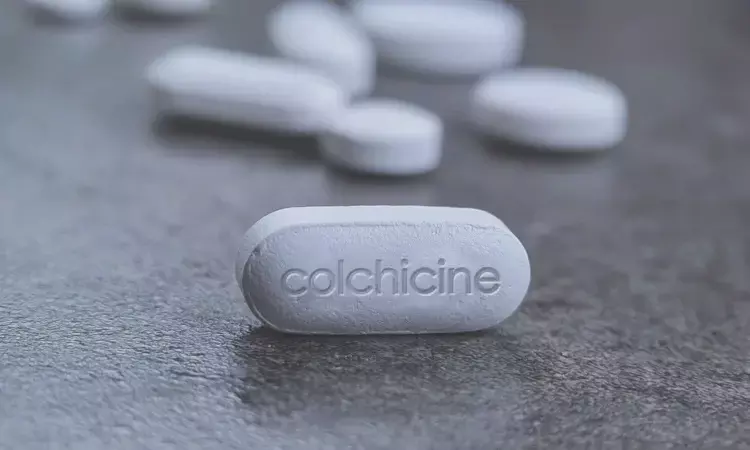- Home
- Medical news & Guidelines
- Anesthesiology
- Cardiology and CTVS
- Critical Care
- Dentistry
- Dermatology
- Diabetes and Endocrinology
- ENT
- Gastroenterology
- Medicine
- Nephrology
- Neurology
- Obstretics-Gynaecology
- Oncology
- Ophthalmology
- Orthopaedics
- Pediatrics-Neonatology
- Psychiatry
- Pulmonology
- Radiology
- Surgery
- Urology
- Laboratory Medicine
- Diet
- Nursing
- Paramedical
- Physiotherapy
- Health news
- Fact Check
- Bone Health Fact Check
- Brain Health Fact Check
- Cancer Related Fact Check
- Child Care Fact Check
- Dental and oral health fact check
- Diabetes and metabolic health fact check
- Diet and Nutrition Fact Check
- Eye and ENT Care Fact Check
- Fitness fact check
- Gut health fact check
- Heart health fact check
- Kidney health fact check
- Medical education fact check
- Men's health fact check
- Respiratory fact check
- Skin and hair care fact check
- Vaccine and Immunization fact check
- Women's health fact check
- AYUSH
- State News
- Andaman and Nicobar Islands
- Andhra Pradesh
- Arunachal Pradesh
- Assam
- Bihar
- Chandigarh
- Chattisgarh
- Dadra and Nagar Haveli
- Daman and Diu
- Delhi
- Goa
- Gujarat
- Haryana
- Himachal Pradesh
- Jammu & Kashmir
- Jharkhand
- Karnataka
- Kerala
- Ladakh
- Lakshadweep
- Madhya Pradesh
- Maharashtra
- Manipur
- Meghalaya
- Mizoram
- Nagaland
- Odisha
- Puducherry
- Punjab
- Rajasthan
- Sikkim
- Tamil Nadu
- Telangana
- Tripura
- Uttar Pradesh
- Uttrakhand
- West Bengal
- Medical Education
- Industry
Low-Dose Colchicine Effective for Preventing Ischaemic Stroke and Atherosclerotic Events, Meta-Analysis Reveals

Netherlands: A recent meta-analysis published in eClinicalMedicine has revealed promising findings regarding the use of colchicine for secondary prevention in patients with a history of ischaemic stroke and atherosclerotic events.
This analysis suggests that in patients with a history of stroke or coronary artery disease, colchicine lowered the incidence of ischaemic strokes and major adverse cardiovascular events (MACE). The treatment demonstrated a consistent effect across important subgroups and did not increase serious safety issues or mortality.
Colchicine, traditionally used to treat gout and familial Mediterranean fever, has garnered attention for its anti-inflammatory properties. Guidelines suggest the use of low-dose colchicine for secondary prevention in cardiovascular disease; however, uncertainties persist regarding its effectiveness for stroke, its efficacy in specific subgroups, and the potential for uncommon yet serious safety outcomes.
Against the above background, Aernoud T.L. Fiolet, Department of Cardiology at University Medical Center Utrecht, the Netherlands, and colleagues conducted a collaborative meta-analysis. Their primary objective was to assess the effectiveness of colchicine in preventing ischaemic strokes and MACE. Additionally, they aimed to provide detailed safety data and examine the efficacy of colchicine in key clinical subgroups.
In the trial-level meta-analysis, the researchers comprehensively searched bibliographic databases and trial registries from inception till May 16, 2024. We included randomized trials assessing the use of colchicine for the secondary prevention of ischaemic stroke and MACE, which encompasses ischaemic stroke, myocardial infarction, coronary revascularization, and cardiovascular death. Secondary outcomes included serious safety events and mortality. A fixed-effect inverse-variance model was employed to calculate a pooled estimate of relative risk (RR).
The following were the key findings of the study:
- The analysis included six trials with a total of 14,934 patients who had a history of stroke or coronary disease.
- Compared to placebo or no colchicine, the use of colchicine led to a 27% reduction in the risk of ischaemic stroke (132 events in the colchicine group versus 186 events in the control group, RR 0.73) and a 27% reduction in MACE (505 events versus 693 events, RR 0.73).
- The effectiveness of colchicine was consistent across key subgroups, including gender, age (below versus above 70), presence of diabetes, and statin use.
- Colchicine was not linked to an increased risk of serious safety outcomes. Hospitalization for pneumonia occurred in 1.5% of patients in the colchicine group compared to 1.5% in the control group (RR 0.99).
- Cancer diagnoses were reported in 3.5% of patients on colchicine versus 3.6% on placebo (RR 0.97).
- Gastrointestinal events were similar, with 2.1% in the colchicine group compared to 1.9% in the control group (RR 1.15).
To conclude, the authors found that in patients with a history of stroke or coronary disease, low-dose colchicine effectively reduced the risk of ischaemic stroke and MACE. These benefits were consistent across key clinical subgroups, and there were no significant increases in other serious safety events or all-cause mortality.
"Our study supports the incorporation of low-dose colchicine into clinical practice for the secondary prevention of stroke and coronary events," they wrote.
Reference:
Fiolet, A. T., Poorthuis, M. H., Opstal, T. S., Amarenco, P., Boczar, K. E., Buysschaert, I., Budgeon, C., Chan, N. C., Cornel, J. H., Jolly, S. S., Layland, J., Lemmens, R., Mewton, N., Nidorf, S. M., Pascual-Figal, D. A., Price, C., Shah, B., Tardif, J., Thompson, P. L., . . . Kelly, P. J. (2024). Colchicine for secondary prevention of ischaemic stroke and atherosclerotic events: A meta-analysis of randomised trials. EClinicalMedicine, 76, 102835. https://doi.org/10.1016/j.eclinm.2024.102835
Dr Kamal Kant Kohli-MBBS, DTCD- a chest specialist with more than 30 years of practice and a flair for writing clinical articles, Dr Kamal Kant Kohli joined Medical Dialogues as a Chief Editor of Medical News. Besides writing articles, as an editor, he proofreads and verifies all the medical content published on Medical Dialogues including those coming from journals, studies,medical conferences,guidelines etc. Email: drkohli@medicaldialogues.in. Contact no. 011-43720751


